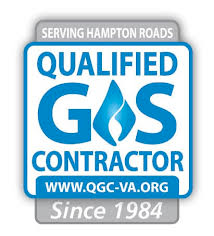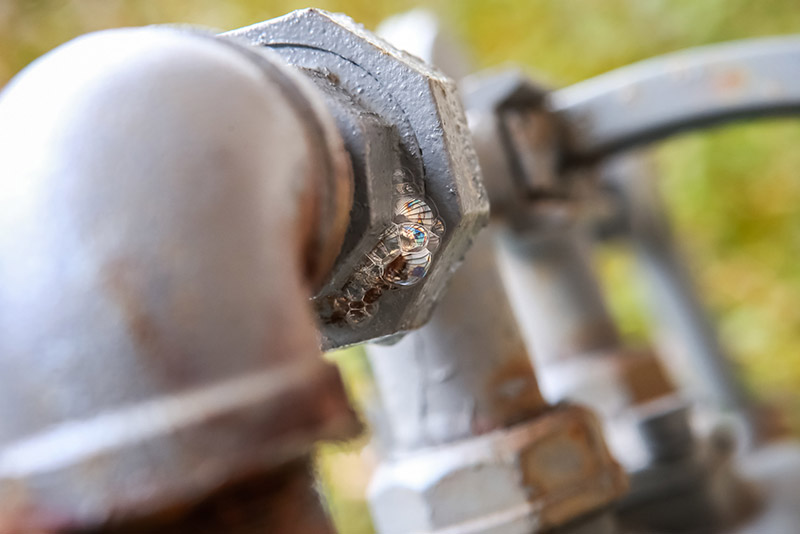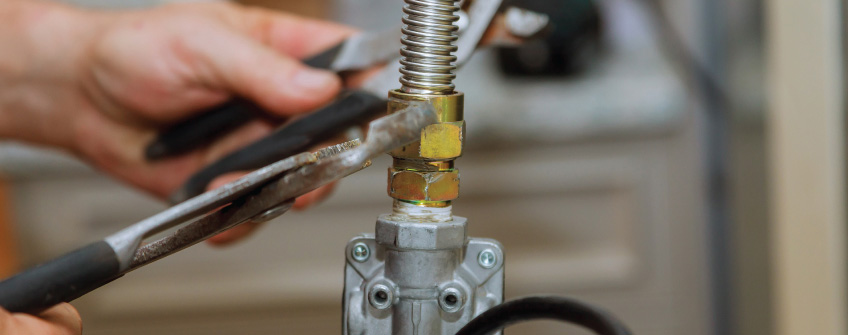Worried About Gas Leaks in Your Home? How to Know There’s an Issue
 Are you concerned there might be a gas leak in your home? Do you feel like you can smell natural gas in certain parts of your home? Have you been noticing a mysterious odor that’s almost like rotten eggs? Or has your family said things that made you suspect a gas leak? No matter what got your attention, finding carbon monoxide or gas leaks in your home is a serious matter. It’s incredibly important to notice potential problems with your gas lines so you can keep your family safe.
Are you concerned there might be a gas leak in your home? Do you feel like you can smell natural gas in certain parts of your home? Have you been noticing a mysterious odor that’s almost like rotten eggs? Or has your family said things that made you suspect a gas leak? No matter what got your attention, finding carbon monoxide or gas leaks in your home is a serious matter. It’s incredibly important to notice potential problems with your gas lines so you can keep your family safe.
But what exactly are the signs you need to be watching out for? And what should you do if there’s a problem in your piping system? That’s what this article is all about. Keep reading to learn everything you need to know to identify and address gas leaks in your home.
What Causes Gas Leaks?
Gas leaks most often occur when a gas pipe or seal becomes corroded. When pipes and fittings break down, gas is allowed to leak into your home (or yard, in the case of outdoor leaks). Additionally, if one of your gas-powered appliances gets damaged, it might start to leak gas as well.
Dangers of Gas Leaks
There are many ways that gas leaks can be hazardous to your home and your family. Low levels of natural gas can cause mild gas poisoning over time, leading to a range of symptoms from headaches to difficulty breathing. And if your home is filling up with gas and something causes it to ignite, such as an electrical spark, it could create a serious explosion.
Carbon monoxide is another gas to watch out for, as it can be quite deadly when inhaled. Unlike natural gas, however, it can’t be detected by smell. That’s why it’s so important to have working carbon monoxide detectors in your home.
Common Places for Gas Leaks
Gas leaks are most likely to occur in places in pipes and appliances that are subject to wear. Because of this, you’re much more likely to find a gas leak where pipes join together at the fittings than in the center of a length of pipe.
Fixtures and pipes that haven’t been upgraded in several years are common places for gas leaks. Things like shut-off valves, unions and tees, regulators, and flexible supply lines are places where gas leaks are most likely to appear. It is also common for gas leaks to occur where the pipe passed through brick or block walls.
How Gas Leaks are Detected
Plumbers have multiple ways that they can detect leaks in gas lines. If you call a plumbing service to inspect your home, they might pressurize the gas line with air, soap down exposed fittings, and even excavate underground lines.
One test you can perform yourself is called the bubble test. To do it, you can prepare a mixture of dish soap and water, then apply it to the exposed gas pipe while the gas is on. If you see bubbles forming in the liquid, it means there’s a leak in that area.
Signs That a Gas Leak Exists
You should be able to tell if there’s a broken gas pipe in or near your home by looking out for a few simple signs. Here’s what to watch out for.
Unusually High Gas Usage
This almost goes without saying, but if you notice your gas bill seems to be getting higher and higher, you might have a problem. If you know you’ve been using a lot more gas than usual, but you haven’t been doing anything to cause this, you probably have a leaky pipe.
If this is the case, look for some of the following signs to confirm whether there is indeed a gas leak in your home or not. Either way, you should call an emergency plumber right away.
A Smell Like Rotten Eggs
In its natural state, natural gas is a completely odorless and colorless substance. As you can imagine, that would make it rather dangerous to use, as it’s hard to detect odorless, invisible gas. For that reason, gas companies add chemicals to gas that cause a sulfur-like smell. This smell is often compared to the smell of rotten eggs. If you notice a rotten egg-like scent in certain places around your home, there’s a good chance you’re dealing with a gas leak.
Mysterious Hissing Sounds
Gas lines aren’t the only places where leaks can happen. Gas appliances, like water heaters, may experience leaks as well. When a pipe or appliance has a large leak, it may emit an audible hissing sound as the gas escapes.
If you notice an unusual hissing sound coming from an appliance, turn it off and see if the sound continues. If there’s a gas leak, the hissing should continue even when the appliance is turned off. Hissing sounds coming from pipes should be reported to an emergency plumber right away.
Bubbles Forming Outside Your Home
Gas leaks don’t only happen indoors. Although an indoor gas leak is usually the most dangerous, underground gas leaks can still be a problem. But how do you recognize a gas leak outside your house?
For one thing, if an outdoor gas line is broken, you’ll probably notice that rotten egg smell we mentioned in certain places around your yard. But you can also look for bubbles forming in standing water, such as in puddles or mud. If you see mysterious bubbles breaking on the surface of standing water in your yard, there might be an outdoor leak there.
Dead or Dying Plants
In our last point, we mentioned that outdoor gas piping can get damaged and cause gas leaks just like indoor lines can. Another sign that there may be a gas leak outside your home is dead or dying plants or grass.
If a patch of grass in your yard has started to die or your shrubbery becomes dried or stunted, it could be a sign of gas poisoning. Specifically, the presence of gas can keep plant roots from absorbing oxygen, which leads to wilting.
Physical Symptoms of Gas Poisoning
This is probably the most serious sign of a gas leak because it could mean that the leak has been going unnoticed for quite some time. If you or your family members suddenly begin experiencing symptoms of gas poisoning, you may have a leak. Symptoms of mild natural gas poisoning include headaches, fatigue, dizziness, nausea, and irregular breathing.
If one or more people in your household begin experiencing symptoms like these, consult your healthcare practitioner and have a plumber inspect your home for leaks. This is especially important if you’ve also noticed other signs of leaks.
Signs That You Need to Replace Your Gas Line

Sometimes all that’s needed to stop a leak is to patch a broken line or replace a fitting. But in other cases, you will need to replace entire lengths of your gas line.
A qualified plumber is the best authority on what your home needs as far as new gas lines are concerned. But generally speaking, you may have lines that need replacing if you notice a hissing sound near them, as discussed earlier. Noticeably corroding gas lines are another sign that they probably need replacing.
How to Prevent Gas Leaks
So far we’ve talked a lot about the dangers and signs of gas leaks, but what can you do to prevent leaks from happening in the first place?
Most of the time, as long as you notice when a leak has occurred right away, there shouldn’t be a problem. Like all things, gas lines wear out over time, and sometimes they simply need maintenance. However, you can help prevent leaks by maintaining your home and appliances properly.
What to do When You Know Your Gas Line is Leaking
If you think there may be gas leaks in your home, you should contact a trusted plumbing service right away. Gas line repair is a high priority for plumbers, and a good service won’t waste any time in getting your natural gas or propane lines repaired.
If you live near Virginia Beach, Virginia, Atomic Plumbing is your best choice for gas problems. We offer emergency services for those moments where time is of the essence. We even provide special financing options to those who need them.
For gas leak plumbing services you can count on, contact Atomic Plumbing today.



